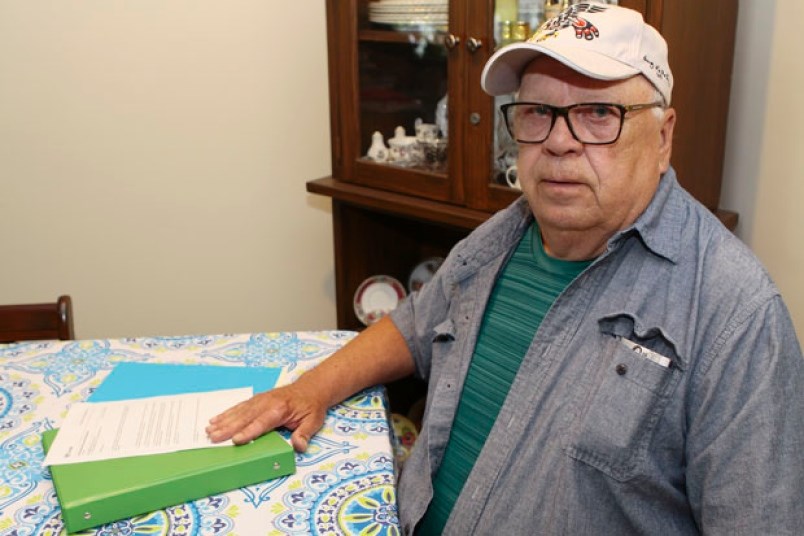When RCMP officers came knocking on Doug Wilson’s door in the early 1980s, he didn’t know what to think.
“The officers asked me for my name and asked for my ID and I gave it to them and then they said I was under arrest,” Wilson said. “Our interaction opened up the door to discussion with the officers. I agreed to meet them down at the station to get fingerprints because they said I was wanted for connections to some thefts in the area.”
The fingerprints come back and the police discovered they had the wrong man, even though the names matched up.
Wilson, who has called South Delta home for two decades, lost his identification when he was living in Houston, B.C.
“Someone with the alias of Robert John Rumble found my ID I suspect and started using my name when he committed these thefts,” Wilson said. “The police said once they caught the real suspect, then the charge would be on him and everything would be cleared up.”
The matter seemed to be over, but recently things resurfaced for the now-retired truck driver.
“I had no problems my whole working life. I drove truck all over North America and had no problems, crossed the border and everything,” he said. “Now I apply for a criminal records check to do some volunteer work and this all gets mixed up again. Government officials told me that they changed their screening process and it appears to me that the system is flawed because I’ve now gone from being the victim of a crime to an offender. This person was impersonating my name, he does some crimes, the police catch him and he does his time and I somehow get the record? This isn’t right.”
Wilson said he continues to get the runaround from government officials who maintain the records are confidential.
“I’ve gone to our local MLAs who say they can’t do anything because it’s a criminal matter, but this is a clerical error,” he said. “I’m looking for some legal help now because this continues to negatively affect my life. I have no words. These politicians are supposed to be part of the solution and yet they seem to be part of the problem. This is not my problem to correct. How can I correct something that is clearly their error?”
When contacted by the Glacier Media for comment, Colin Hynes, spokesperson for the Ministry of the Attorney General, said the ministry has adhered to consistent criminal record check and security screening processes for the applicant.
“The Criminal Records Review Program uses various sources of information, including for example the Canadian Police Information Center (CPIC) and the British Columbia Corrections Network (CORNET) databases,” Hynes said in an emailed response to the Optimist. “While the security programs division is able to provide general information about our programs and processes, we are unable to provide information that is specific to a particular applicant for privacy and confidentiality reasons.
“If the applicant wishes to follow-up directly with the ministry, they may write to our office.”
- Ian Jacques, Delta Optimist



